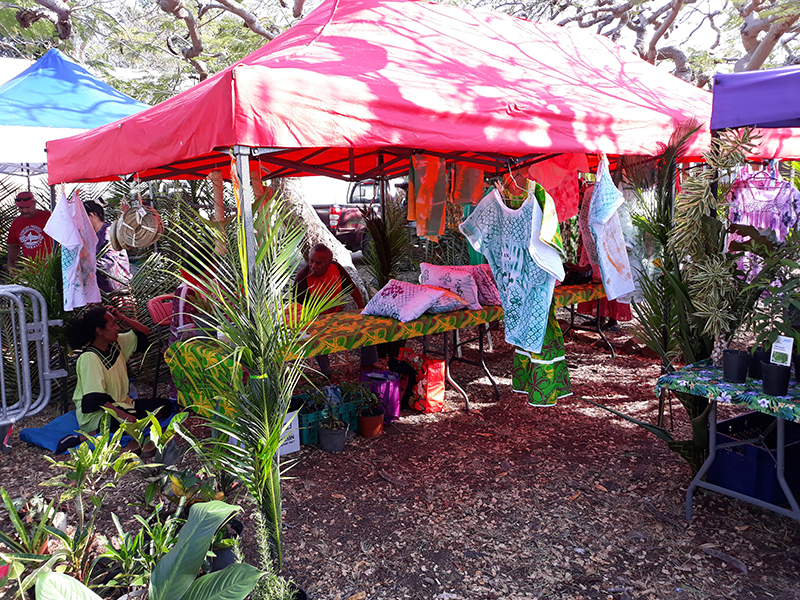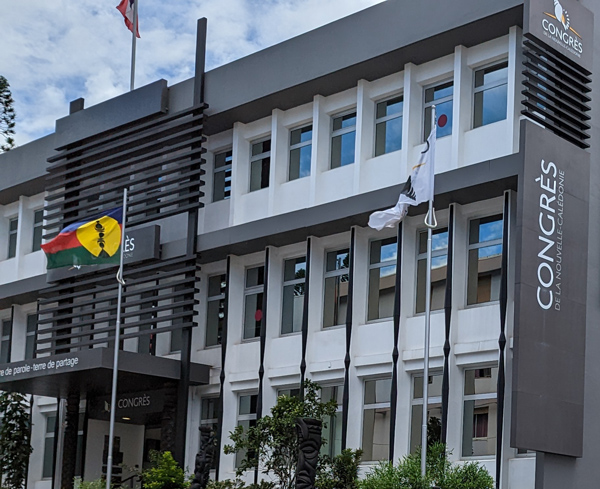The New Caledonia’s economy is above all a typically Island Country’s economy and characterized by its colonial history.
First of all, New Caledonia is particularly isolated geographically and its small population makes economies of scale impossible. Furthermore, the development of specific skills remains difficult, and the realization of large projects requires the contribution of skills.
Furthermore, being a former colony, the organization of New Caledonia on the economic level is marked by the control of the bulk of the economy by a minority of “large families” resulting specifically from colonization settlement. On the land level, similarly, the possession of land is still marked by the large farms held by Caldoches Families resulting from penal or colonization settlement.

However, New Caledonia has courageously taken up the challenge of history. For 40 years and the Noumea Accords, many mechanisms have been put in place and major works, such as the retrocession of land, initially carried out to counter the economic scars of colonization. Similarly, specific training programs such as “400 cadres” which became “Cadre Avenir” are still carried out today to allow local populations, and especially Kanaks, to access positions of responsibility.
Then, the Provinces, the government of New Caledonia with permanent and massive support from the French State have carried out development and planning projects, particularly in the mining, tourism and agriculture sectors.
Despite these encouraging indicators and the financial resources injected, New Caledonia remains an economy that is very heavily dependent on subsidies from the French State and nickel prices.
Knowledge of the Territory of New Caledonia is particularly important, to be familiar with the nickel world, but also to establish healthy and profitable working relationships.
New Caledonia status is not a French Department, nor is it an Overseas Country (POM) or an Overseas Territory (TOM), it is a sui generis community (with a special status).
Its uniqueness lies in its substantial management autonomy within the French State Structure. As a result, the territory is governed by a model that is between a semi-parliamentary and semi-presidential.
The competences are shared between:


It is therefore not always easy to identify the relevant authority, moreover, certain powers are exercised jointly by the French State and the New Caledonia Government. There is truly a “sharing of skills”, a rare and rather exceptional fact in the usually very centralizing French law.
Thus, the New Caledonia Congress is able to adopt, in the areas where it is competent, laws of countries that have the same legislative value as the laws voted by the French Legislative Assembly.
The degree of autonomy has even been constitutionalized since Title VIII of the French Constitution is exclusively dedicated to New Caledonia.
A particularity that is also found in the status of civil servant members, since this includes members of the Territorial Civil Servants, as well as members of the French National Civil Servants.
Such an organization was gradually put in place within the framework of the sovereigntist claim carried out by the Kanak initially and now by a part of the population (Kanak and non-Kanak) who are inquiring the accession of New Caledonia to its full sovereignty. The Matignon and Noumea Accords in 1988 and 1998 were adopted with this in mind.
In 2024, after three referendums (held in 2018, 2020 and 2021) in which the “NO” won, the status of New Caledonia remains, without intended puns, in a status quo. The supporters of sovereignty, the separatists, claim that the third referendum held in 2021 was not valid (43.87% turnout after a call for a boycott by the separatists). However, the supporters of New Caledonia in France, the loyalists, believe that democracy has been respected and that the people have expressed themselves.
The situation therefore remains tense on issues such as employment or voting in New Caledonia and blockages or demonstrations occur regularly, for reasons that are not necessarily always clear.
All these particularities make New Caledonia subject to social, political and economic unrest regularly whether it concerns local employment or the right to vote. However, these social unrests are not of a nature to endanger people’s lives. More often, it is the roads that are hindered in a localized manner and for short periods.
In 2024, following the attempt to vote on a law modifying the voting procedures, a major conflict, never seen since the “events” of 1984, broke out, leading to the destruction of more than a hundred businesses in Noumea and Greater Noumea. Nearly 10,000 people now find themselves without jobs, and the impacts are estimated at several billion Pacific francs.